How the Solidarity of Black Workers Advanced Labor Rights for All
In "Black Folk — The Roots of the Black Working Class," Blair M. Kelley tells the story of her working-class ancestors, stretching back into the 19th century.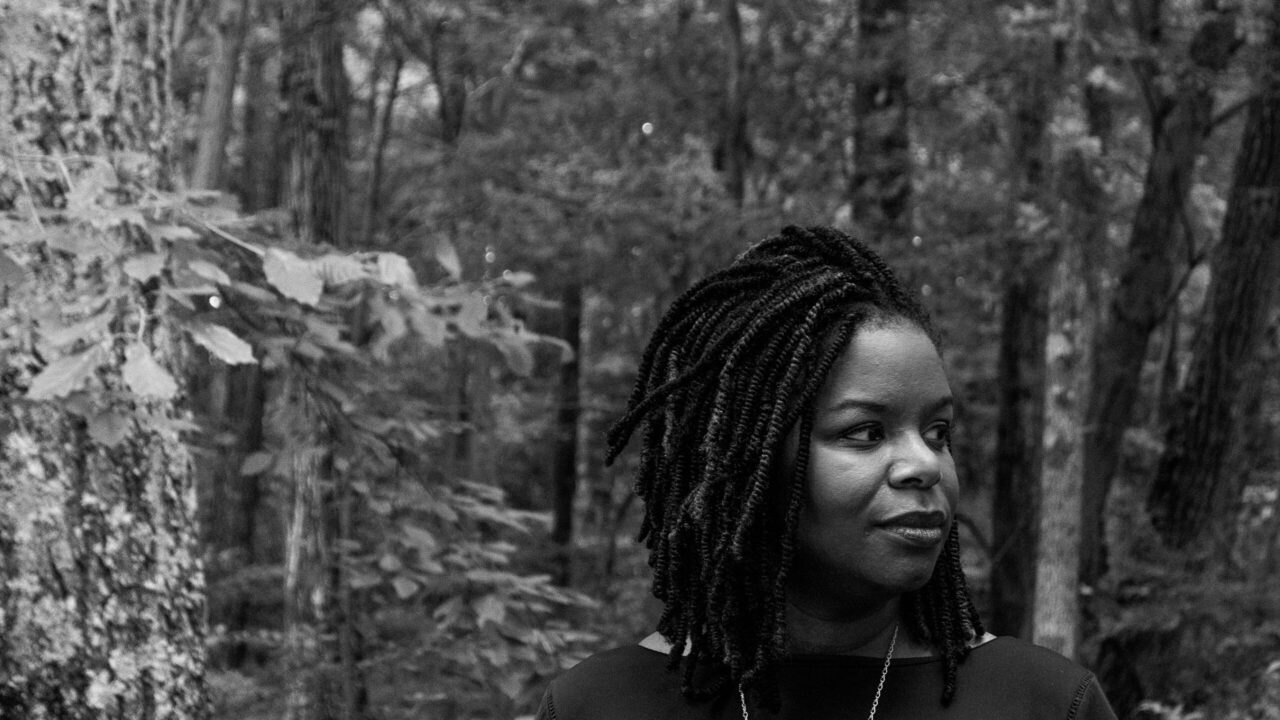 Blair LM Kelley. Photo by Phillip MacDonald / Capital & Main.
Blair LM Kelley. Photo by Phillip MacDonald / Capital & Main.
During the pandemic, 28% of Black workers were classified as “essential,” doing the work of caring for others that put them and their families at great risk. In Professor Blair LM Kelley’s new book, Black Folk — The Roots of the Black Working Class, Kelley tells the story of her own working-class ancestors, stretching back into the 19th century, who also did the essential work of our economy. They suffered exploitation and violence as slaves, sharecroppers and maids but also forged bonds of mutuality with their families and fellow workers.
Black Folk charts the history of a family while also describing how African Americans built organizations — including churches, unions and support groups — fought for economic and political rights and had a nationwide impact. Black churches, Kelley writes, were sacred spaces that “retained their subversive power” by providing a vision of liberation while serving as a training ground for political struggles. And when white-run unions showed no interest in organizing Black workers, African Americans built their own unions, like the Brotherhood of Sleeping Car Porters, founded in 1925.
Not paying attention to the humanity of those who were doing service work was something that many Black workers like the Pullman porters or domestic workers really suffered from.
Anchored in the past, Black Folk also points towards the future. For the labor movement and democracy to thrive, Black workers will have to be at the center of our economic and political movements. The perseverance, discipline and dignity that Kelley found in her own family and in the maids, washerwomen and postal workers whom she researched form the foundations for a “fervent vision of freedom,” one that we will need moving forward.
Blair LM Kelley is the Joel R. Williamson Distinguished Professor of Southern Studies at the University of North Carolina. She spoke to Capital & Main from the campus in Chapel Hill, North Carolina.
This interview has been edited for brevity and clarity.
Capital & Main: You have written an analytical history that is also a work of family memory and preservation. How did you combine those two approaches?
Blair LM Kelley: The experiences of my family, the stories that my mother told me, were a starting point for me. I wanted to capture a human dimension that sticks with people. I wanted to make sure to use the things that I knew and then use archival documents, census documents and oral histories to enliven and enrich what I already knew on a personal basis. It’s that connection that we all crave when we’re trying to understand our past.
A recent report from the Bureau of Labor Statistics shows that Black workers have a higher union membership rate (11.6%) than any other group of people. As an historian, how does looking at Black working-class history explain this?
I was struck by the percentage of Black union members in particular, because so many Black people are Southerners or have returned South, and the South has notoriously worked hard to restrict the power and activity of unions. Those numbers are a recognition of the power that organizing has for so many families to make working class jobs meaningful and substantive in the long term.
When we talk about unions, we often don’t think about Black workers. I thought it was important to bring them back to the national consciousness.
You describe how both the enslaved and Black workers were often stripped of their identity by being denied a name. Sleeping car porters, for instance, were uniformly referred to as “George,” after George Pullman.
I think that the anonymity of Black workers is really profound. Not paying attention to the humanity of those who were doing service work was something that many Black workers like the Pullman porters or domestic workers really suffered from. It’s easier to exploit and to demean someone if you don’t have a sense of them as a real human being with an identity and a backstory. Slaves, of course, were property. Recording names was seen as unnecessary. In the schedules of value, they were mentioned in the same way that furniture was recorded, as just another piece of property.
You chronicle how the Black church has been a “launching pad for working-class organization.” Describe that dynamic.
The church is really the first Black institution that gets formed in this country as an independent space. It often begins in enslavement and then moves with people as they enter freedom. They are finding the space to talk, to think, to theorize and organize in church spaces because they are away from the gaze of whites. The church cushions them because it’s framed around worship. They become a means by which you can share information in a place where communication is safe and to a certain extent, secret. The prime example of this is the Civil Rights Movement.
What were some of the other ways that workers created cultures of mutual aid and solidarity?
I was fascinated by the washerwomen who had turned their backyards into collective spaces where they could meet and have conversations. They can make decisions about who might be a good new customer, how they can share the labor with one another or which people don’t pay properly.
You see so many Black people take on leadership roles in their community regardless of what job they might have that might be seen by outsiders as “simple.”
Barbershops, beauty salons, in urban spaces in the 20th century, became hubs of conversation and organization. Even on public transportation we can see that the women are talking and collecting their ideas for the workweek. Labor history has often focused on the shop floor as the only space for organizing. But in Black life, when you push back from just a strict worksite, you see a variety of places where the forging of solidarity is taking place.
Early unions like the Brotherhood of Sleeping Car Porters and the National Alliance of Postal Employees were founded by African Americans. How did these unions expand the boundaries of more conservative unionism?
Those unions are created out of larger collective concerns. The Pullman Porters wage a long-term battle for over a decade under the leadership of A. Philip Randolph to be recognized. Many people in the community participate in that process. It isn’t just the porters themselves. It’s women’s clubs and social organizations from cities who are not porters but push the porters’ cause. This makes their fight a larger collective effort and creates a broader vision about their responsibility to the community.
The celebrated March on Washington Movement [1941-1946] to desegregate federal employment became the beginning of the Pullman Porters as a civil rights organization. Because the porters are aware of national dynamics, they become civil rights leaders in their own communities. The Montgomery bus boycott was organized in part by E.D. Nixon, who was a Pullman porter and member of the NAACP in Montgomery. The things he learned as a porter and the networks he was part of enabled them to launch a movement that made a national impact.
You write that Black workers’ insistence on the dignity of their labor, no matter how “lowly,” was political. How so?
Even today when you are in a collective space you often get the question, “What do you do?” Black people generally don’t ask that question of each other. We tend to start questions by asking something broader, especially working people. It’s not what you do but who you are. What you do is a kind of limitation so who you are is more relevant.
You see so many Black people take on leadership roles in their community regardless of what job they might have that might be seen by outsiders as “simple.” While the world is bound by segregation and discrimination, who you are and what you can become in the community are not bound by those restrictions.
Throughout you write about how Black workers’ skills were often highly developed but often unrecognized and unrewarded. Why did you focus on that?
In labor history we tend to say that there are skilled professions and unskilled professions. There were skilled slaves and unskilled slaves. And that’s the framework. If you were a mason, carpenter or bricklayer, then somehow that’s a marketable skill that gives your labor more value.
It’s no accident that many of the leading voices of the current labor movement are Black men and Black women pushing for a greater vision for their organizations.
As I began to study the work of the Black working class over time, I was struck by the profound skill that it must have taken to do their jobs every day. The washerwomen who made their own soap and created bluing and made their own starches. They pressed clothes with a literal piece of iron with a cloth wrapped around the handles to keep their hand from burning. There was an ingenuity and knowledge they had that was profound, even for the lowliest work.
Work is to some extent about power — who has it and who doesn’t. You describe how Black workers used whatever leverage they had to gain some measure of power for themselves.
What was striking is the degree to which Black workers understood the market. The Pullman Porters recognized that if you frame this job as a Black job and only Black men can do it, then you need us. We are going to use our education, our vision and the monopoly that we have on this employment for our benefit. You had washerwomen doing the same thing, coming out of enslavement in 1865 and immediately organizing a union. They knew what power they had and how to harness it.
During the Great Migration, which started early in the 20th century, millions of African Americans moved out of the South, often to cities in the North, Midwest and West. What impact did that movement have on the Black working class?
In the very first generations, the migration shifts labor markets, but it doesn’t necessarily put Black people in the places that they thought they might have access to as a result of moving. They moved away from the formal structures of segregation and from the epicenter of lynching, racial violence and disenfranchisement. But it does not transform their working lives in parallel ways.
It’s a reminder that the problem of race, the problem of de facto segregation, and the problem of discrimination was a national one which was not completely defeated by leaving the South. My grandmother’s generation goes through a period of really having to fight for equal and broader access to good jobs.
Was there a distinct experience that Black workers once had that today can point the way forward for labor?
The distinctive experience was how African Americans come to this country and begin their working lives in bondage. Being able to trace my ancestors back before the American Revolution is a reminder of the deep roots that Black workers have in this land. Because of that experience of bondage, Black Americans come to work in a different way and they come to each other in a different way. They have to build networks to survive. They have to be in communication and collaboration and community to survive. They become successful and thrive by building solidarity with one another.
How can this knowledge help the labor movement going forward?
It’s no accident that many of the leading voices of the current labor movement are Black men and Black women pushing for a greater vision for their organizations. Coming out of the pandemic, the kind of work that Black workers as essential workers had to do calls for more creativity in the ways we support each other.
Interracial unionism is born out of Black workers reaching out to white workers and others and not the other way around. Some of the violence that we see in labor history has really been about white workers seeing Black workers as a threat. I’m hoping my book can remind everyone that collectivity is where the power is and that the broader you can make that movement the better.
Copyright Capital & Main.
Your support matters…Independent journalism is under threat and overshadowed by heavily funded mainstream media.
You can help level the playing field. Become a member.
Your tax-deductible contribution keeps us digging beneath the headlines to give you thought-provoking, investigative reporting and analysis that unearths what's really happening- without compromise.
Give today to support our courageous, independent journalists.
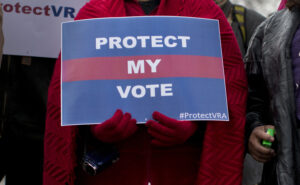
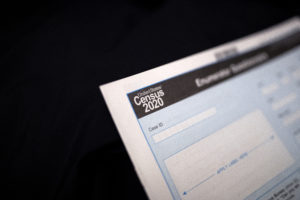
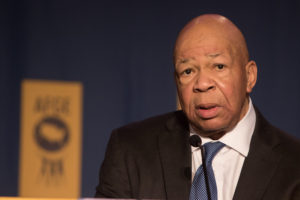

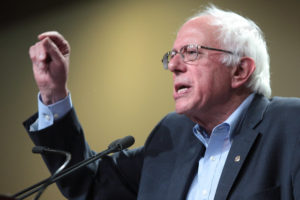
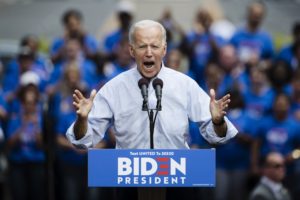
You need to be a supporter to comment.
There are currently no responses to this article.
Be the first to respond.